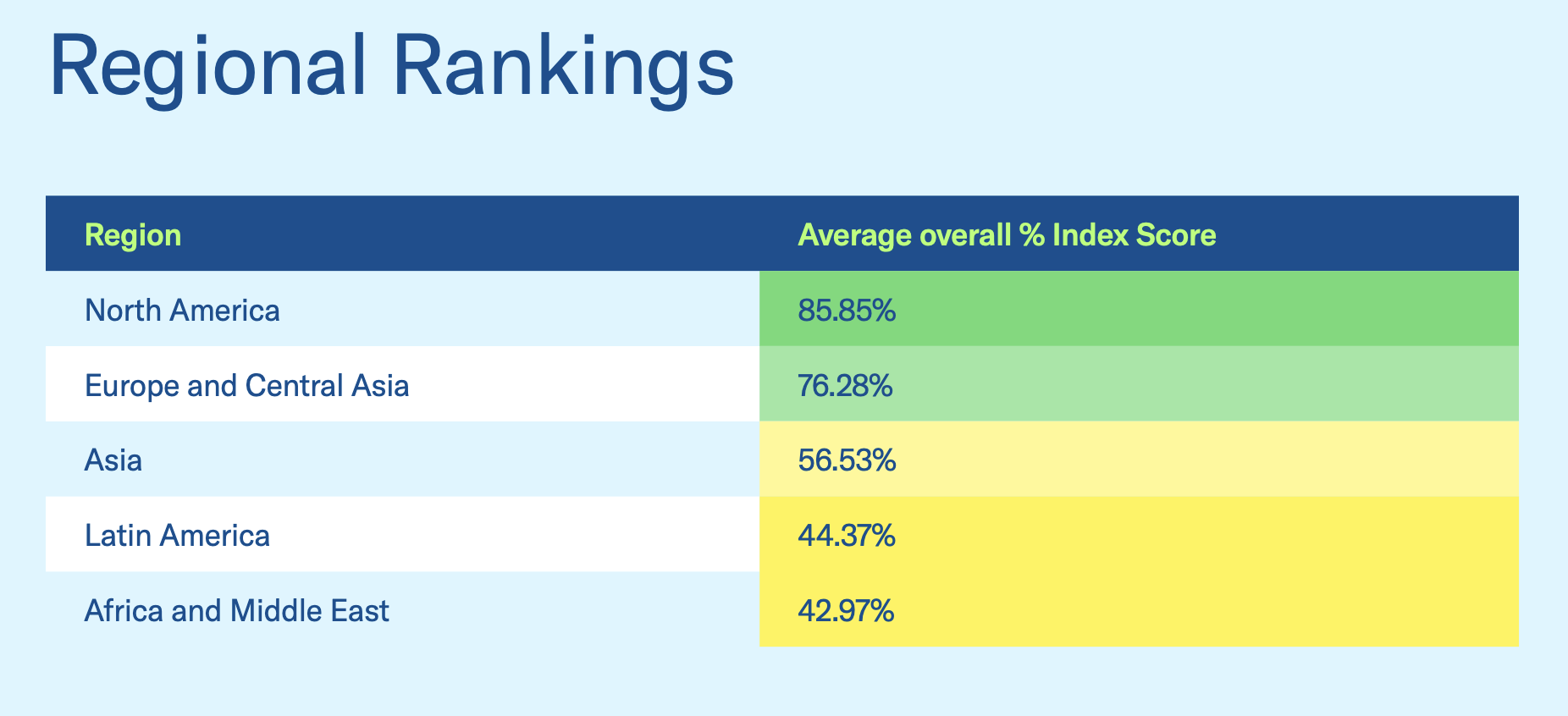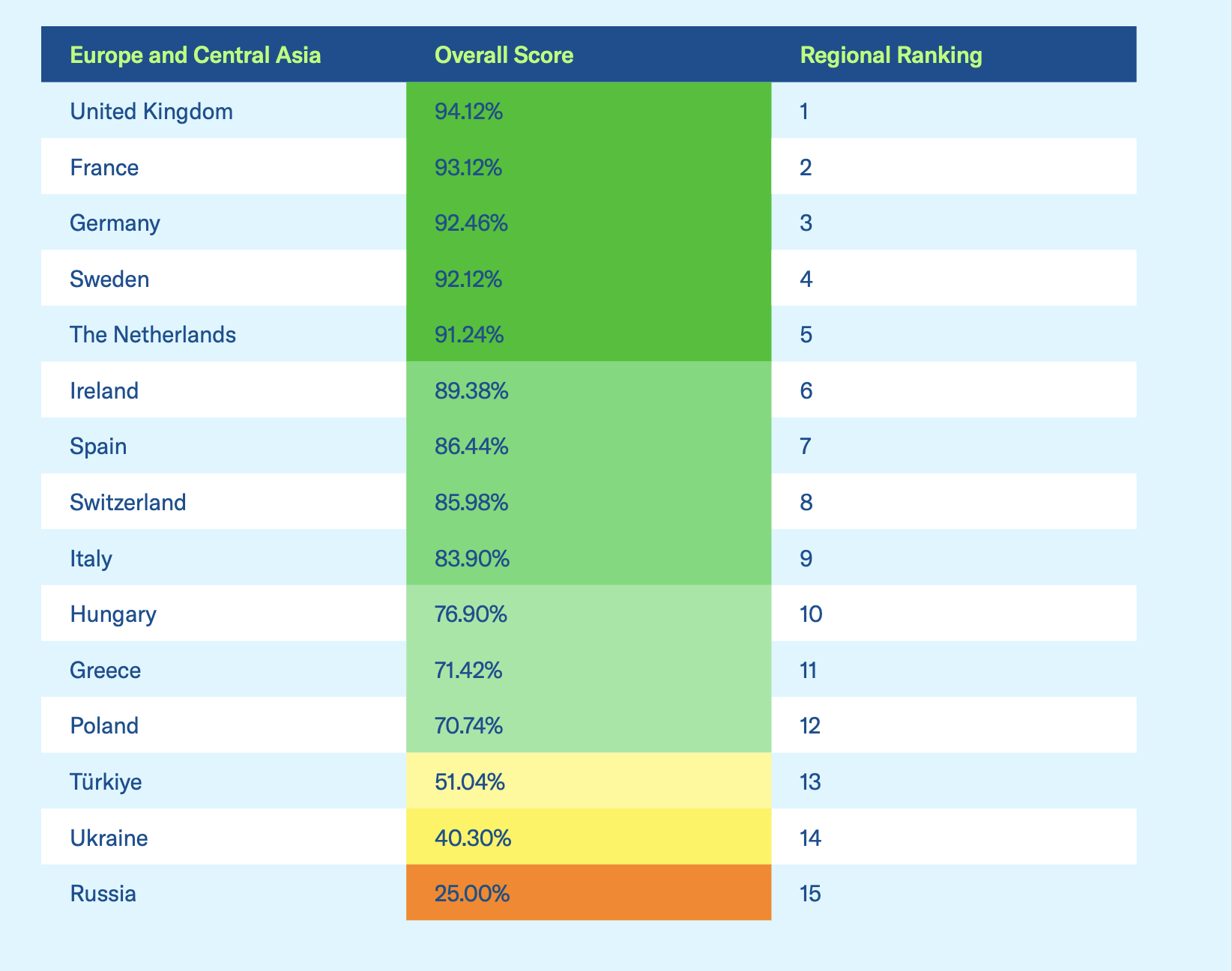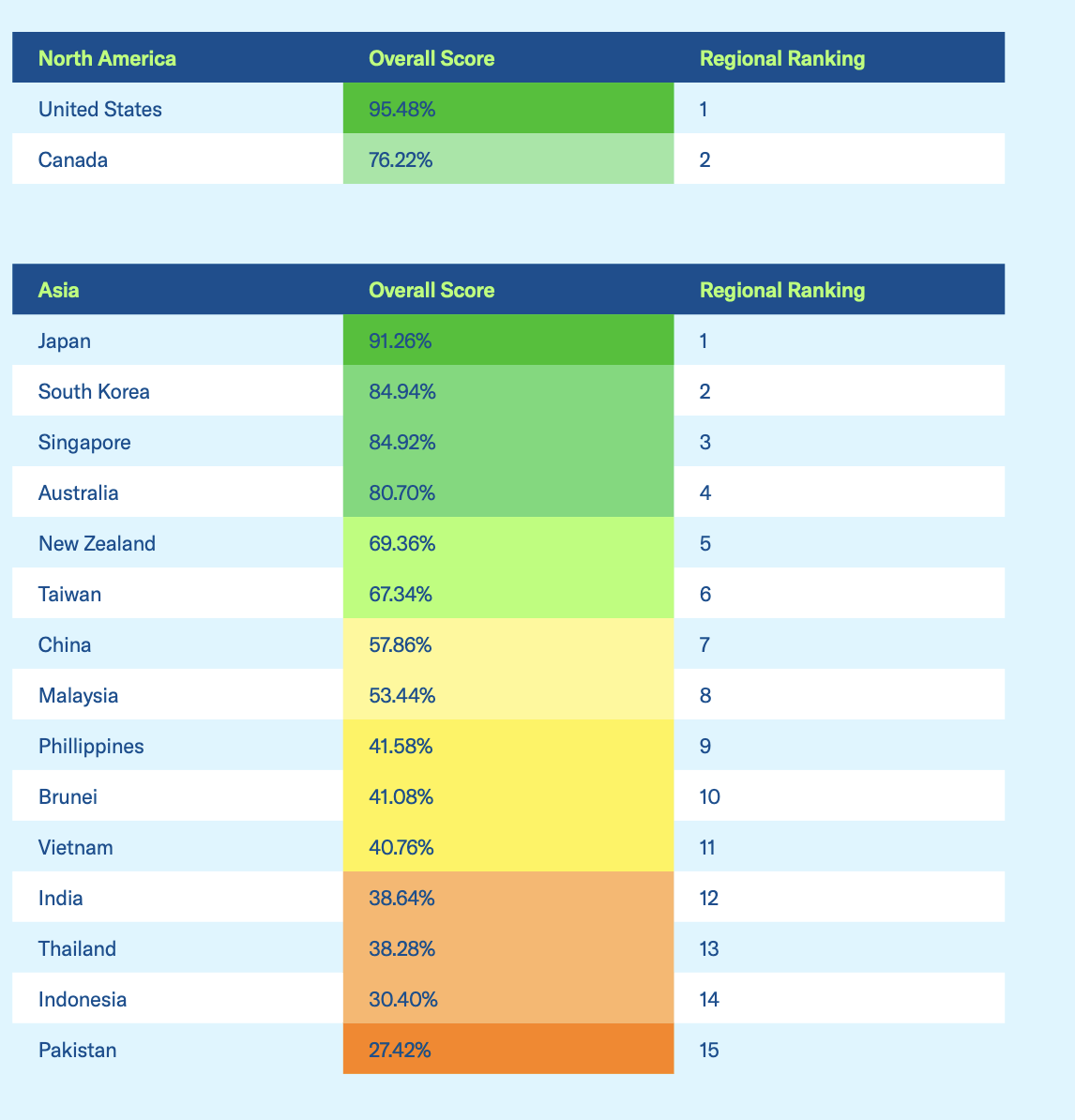[ad_1]
“[W]hile it might be the perfect of instances for world innovation, it might even be among the many worst of instances for rightsholders dealing with fixed infringements and uncertainties throughout world IP frameworks.”
On February 22, the U.S. Chamber of Commerce’s World Innovation Coverage Middle (GIPC) launched the 2024 International IP Index, which gives an annual snapshot of the impression of authorized developments in mental property (IP) on the innovation ecosystem in dozens of countries the world over. Whereas this twelfth model of the GIPC’s index famous some optimistic developments in nationwide IP frameworks, stagnation among the many recurring leaders of the IP Index is a significant concern given rising efforts by governments to regulate costs in vital sectors of the economic system, particularly in prescribed drugs.
TRIPS Waiver, EU Biopharmaceutical Laws Amongst High World IP Issues
Of the 55 nationwide economies included within the 2024 Worldwide IP Index, the three nations who noticed their IP framework scores enhance essentially the most had been Saudi Arabia, Brazil and Nigeria. Saudi Arabia gained greater than six share factors on this yr’s GIPC index thanks largely to elevated IP enforcement efforts by the Saudi Authority of Mental Property (SAIP), which the nation established in 2017 to consolidate its IP departments. IP enforcement campaigns in Brazil and the Nigerian authorities’s current enactment of extra sturdy copyright laws are credited with bettering prospects for IP house owners in these nations as properly.
Throughout the GIPC’s index, general scores on IP enforcement frameworks remained the identical for 28 nations, whereas solely eight nations noticed their scores lower, and solely Ecuador noticed a drop of multiple share level. Nevertheless, this yr’s Worldwide IP Index confirmed that, among the many high 10 nations by index rating, solely The Netherlands in seventh place improved since final yr’s index. That nation’s rating elevated by greater than half a share level due partly to elevated efforts by Dutch legislation enforcement in blocking entry to unlawful content material over tv set-top bins. Whereas 5 nations within the high 10, together with america, noticed their scores keep fixed, index scores dropped barely for the UK, Sweden, Eire and Switzerland.
Canvassing worldwide developments impacting general IP developments, the 2024 Worldwide IP Index famous that severe challenges to frameworks for IP rights have been arising inside nations which have in any other case been IP leaders. Foremost amongst these is the evolution of the TRIPS Settlement waiver on the World Commerce Group (WTO) for COVID-19 vaccines and coverings, which might negatively impression the prevailing IP frameworks which have each enabled world manufacturing of vaccines and elevated native technical know-how the world over. Particular to European nations, the GIPC’s index additionally voiced considerations concerning the European Union’s (EU) proposed biopharmaceutical laws, which might make it tougher to increase information exclusivity whereas additionally rising exemptions for follow-on builders to refine well being applied sciences with out authorization from the rightsholder.
Longstanding Points Surrounding Patentability and PTAB Persist in america
Whereas america once more earned the highest general rank on the GIPC’s index, a number of points weakening the nation’s IP system stay unaddressed. Key weaknesses for the IP system of the U.S. embrace long-standing uncertainties relating to subject material eligibility for patentable innovations within the high-tech sectors. Certainty in U.S. patent rights is additional undermined by long-standing points with validity proceedings on the Patent Trial and Enchantment Board (PTAB).



All through the index’s executive summary, the GIPC cautioned that the Biden Administration’s current efforts to train march-in rights beneath the Bayh-Dole Act of 1980 “would in all chance result in the whole destruction of the present life sciences R&D ecosystem, which is constructed round mutually helpful public-private partnerships.” The U.S. Chamber of Commerce, the GIPC’s mother or father group, has publicly opposed current calls by U.S. federal businesses to contemplate product commercialization elements for exercising rights to relicense patented applied sciences developed partly by federal funding. The index’s survey of IP asset commercialization additionally famous that authorities actions in China, Japan and the EU have been creating uncertainties for house owners of standard-essential patents (SEPs) which can be vital to the approaching technology of telecommunication and networking applied sciences.
Whereas numerous considerations over the state of worldwide IP frameworks had been obvious on this yr’s version of the Worldwide IP Index, there have been optimistic developments amongst world IP leaders recognized by GIPC. In america, legislative efforts pushed by Sens. Chris Coons (D-DE) and Thom Tillis (R-NC) would handle lots of the patent group’s long-standing considerations over patentability requirements and PTAB proceedings. In copyright, the GIPC famous that Brazil and Argentina have joined Canada, India and Singapore in offering dynamic injunctive aid for on-line infringements. The GIPC additional lauded India for enacting legal sanctions obtainable in opposition to these discovered answerable for movie piracy.
Whereas many innovation economies are making strides ahead, the GIPC concluded that almost all of present authorized developments will undercut the enterprise group’s potential to handle local weather change, future pandemics and different public crises. Because the Charles Dickens quote opening the Index’s foreword underscores, whereas it might be the perfect of instances for world innovation, it might even be among the many worst of instances for rightsholders dealing with fixed infringements and authorized uncertainties throughout world IP frameworks.
Photos Supply: International IP Index

[ad_2]
Source link

